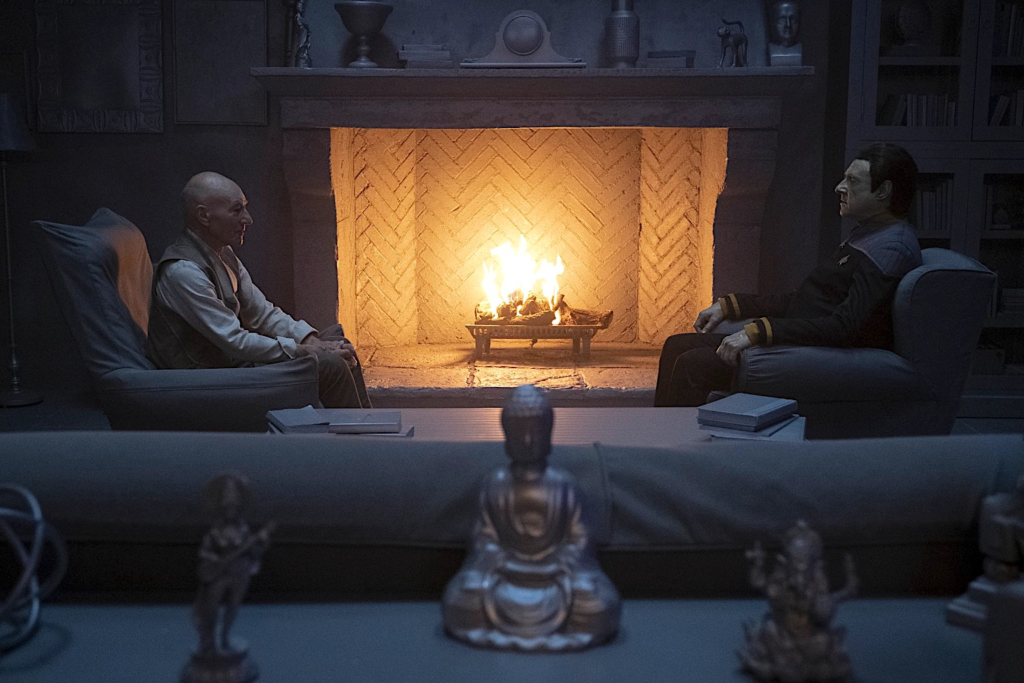
In the season finale of Star Trek: Picard (2020), scientists scan, map and transfer a complete neural image of Jean-Luc Picard’s “brain substrates” to an artificial body—a lab-grown golem—right before his biological death.
After Picard returns to real time from a “massively complex quantum simulation,” he is told that everything works in his new body; the brain abnormality responsible for his biological death has been corrected.
“You haven’t made me immortal?” Picard asks hesitatingly.
They haven’t; they have designed a “cellular homeostasis algorithm” programmed to kill him in a few years.
“I wouldn’t have minded another ten,” Picard says. “Twenty?”
Picard is too modest to admit that he wouldn’t mind immortality after all. Our body is replaceable in the far future; the captain might outlive the franchise for all we know.
The last episode of Star Trek: Picard also bids a touching farewell to the sentient android, Data, who seems to believe that the ultimate criterion for humanity is death. That death is the ultimate prize; it makes us human. Bad writing, I’d say.
At the time of writing this editorial, the novel coronavirus COVID-19 had claimed 27,417 lives. The toll has already risen to 33,976 today. Were these deaths preventable? Yes—if the world wasn’t so broken.
In an ideal world, everybody will be healthy. There will be no need for a doctor in a future world where bodies can be replaced, limbs and organs regenerated. Where every home, every transport vessel is equipped with AI medical bots and sickbays, there is no requirement for a hospital—every home, every vehicle can serve as a hospital in case of an emergency. While the Star Trek future is still far, we are on the verge of a medical-biotechnological revolution right now.
Technology alone won’t solve all of our problems. We have to adapt to the present and changing times, and respond faster; we have to reinvent, rewrite and retool nearly all of our laws and institutions to save the wildlife and environment. Do not forget that we are part of this fragile ecosystem, that we are the “wildest” of all animals. The rich and the poor, we are all alike: fallible, vulnerable, prone to corruption of body and soul, and death.
Nobody knows for sure what the world during the coronavirus pandemic or after the pandemic will become. We have to make use of the tools at our disposal—access to decades of research, stories and experiences—to shape and demand the future we want. Do you want access to healthcare to be a privilege or a worldwide, universal right? Do you want to live in a totalitarian, surveillance society or do you want to fight for a free, just, peaceful, prosperous and united society? Be careful. Be kind. Be wise. Your decisions and choices will affect everyone and everything that keeps our planet alive, not yet dead.
The contents of this issue of Mithila Review is being released online for free all at once. If you can, please donate and support us: https://mithilareview.com/donate/
Stay safe, stay indoors. Work from home, if you can. Don’t panic. Stay strong.
Love.
— @salik
March 30, 2020
New Delhi




